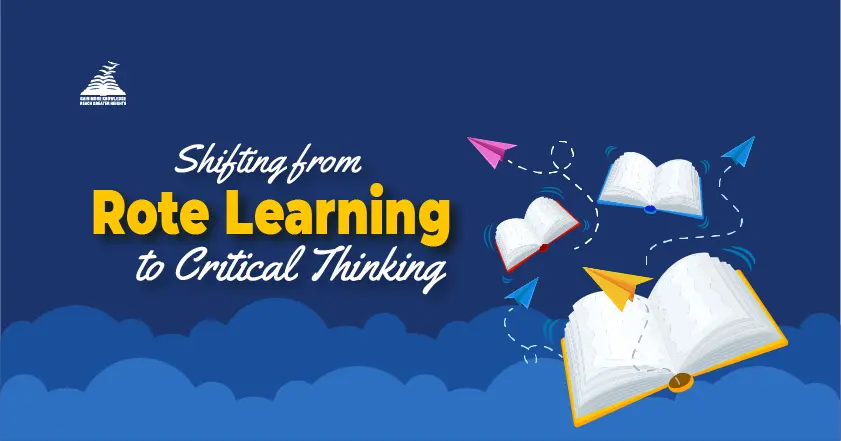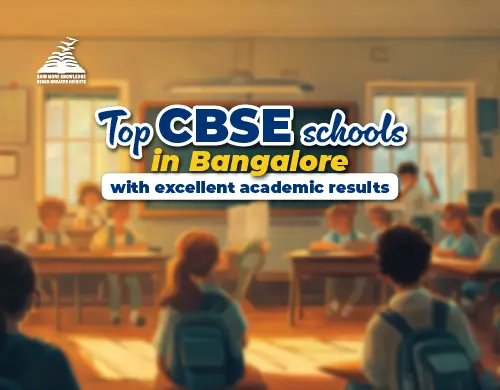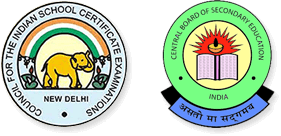If you think exams are all about memorization, you’re going to be pleasantly surprised. The Central Board of Secondary Education (CBSE) has just given a green light to a major change beginning in the 2026–27 academic year: open-book assessments (OBAs) for Class 9. It sounds like a game-changer, and in many ways, it is.
1. Shifting from Rote Learning to Critical Thinking – Exploring how open-book assessments foster deeper understanding
Imagine sitting in an exam where you can refer to your notes or textbook, but that doesn’t let you simply rewrite facts. Instead, the questions are designed to make you think—apply what you know, connect ideas, and solve real problems. This is the heart of open-book assessments. This new format encourages critical thinking and deeper understanding, a major leap from straightforward rote learning that doesn’t test your true comprehension.
2. Aligned with NEP 2020 & NCFSE 2023 – How this reform meets the vision of competency-based education
This change isn’t random—it’s rooted in India’s broader education vision. The National Education Policy (NEP) 2020 and the National Curriculum Framework for School Education (NCFSE) 2023 advocate for competency-based learning—teaching students how to think, not just what to memorize. Open-book exams directly align with these goals, making them a significant milestone in CBSE education reforms.
3. Rollout Begins in Academic Year 2026–27 – When and how the new system will be implemented
So when does this start? From the 2026–27 session onwards, Class 9 internal assessments will include an open-book option. These exams will be part of the three pen-paper assessments per term, covering core subjects such as languages, mathematics, science, and social science.
4. Pilot Study Insights – Lessons learned from initial trials and why the shift is considered
Before making this leap, CBSE conducted a pilot run in late 2023 for Classes 9–12. The results were eye-opening: student scores ranged widely—between 12% and 47%—indicating that many students struggled to effectively use reference materials under time pressure. Still, teachers who participated were optimistic. They believed the format could unlock deeper thinking, provided students had better guidance on how to use resources strategically.
5. Subjects Covered Under OBAs – Languages, Maths, Science, and Social Science included
From the start, the open-book model won’t be limited. It spans key subjects—languages, mathematics, science, and social science ensuring that students from best schools in Bangalore can apply analytical thinking across the board.
6. Optional and Flexible Implementation – Schools can adopt the model based on readiness
CBSE isn’t forcing this change on everyone. Schools can choose to adopt the open-book model based on how ready they feel. To help them, the board will provide a clear framework and guidelines. This is great news for both CBSE schools in Bangalore and beyond, especially for the top CBSE schools in Bangalore, as well as CBSE schools in Bangalore South.
7. Supporting Resources & Training for Teachers – Ensuring educators are equipped for the new format
Teachers from the best high schools in Bangalore, are critical to making this work. CBSE plans to equip educators with training, standardized sample papers, and support for crafting effective, application-based questions. These tools will help schools transition toward this innovative teaching method successfully.
8. Assessment Style: Application Over Recall – How exam design emphasizes analysis and real-world thinking
Here’s the best part: these assessments at the top CBSE schools in Yelahanka emphasize doing over memorizing. Questions will focus on analysis, real-world scenarios, and creative thinking. It’s about testing your understanding, not your short-term memory.
9. Expectations vs Reality – Understanding student performance trends during the pilot (12%–47%).
The pilot study made one thing clear: open-book exams aren’t easy. Many students scored low because they didn’t know how to use their resources wisely. There’s a learning curve for both students and teachers. But with time and training, performance trends are expected to improve significantly.
10. Drawing from Past OBE Experience – Learning from the Open Text-Based Assessment initiative (2014–17)
This isn’t CBSE’s first experiment with open-book formats. Between 2014 and 2017, the board ran Open Text-Based Assessments (OTBA) for Class 9 and for some Class 11 subjects. Despite its good intentions, the initiative was phased out because it didn’t effectively enhance critical thinking. The new model, however, is built on those lessons—and comes with more training, better support, and alignment with NEP 2020.
Presidency Group of Schools – Leading with Vision in Education
The Presidency Group of Schools has been at the forefront of educational innovation for decades, consistently raising the benchmark for quality learning in India. With campuses across Bangalore and Mangalore, the group has earned a reputation as one of the best schools in Bangalore and among the top CBSE schools in Bangalore. Known for blending strong academics with innovative teaching methods, the group nurtures critical thinking, creativity, and holistic growth in every child.
By embracing reforms such as the CBSE open-book exams and aligning with national education goals like NEP 2020, Presidency ensures its students are future-ready. From play schools in Bangalore to best high schools in Bangalore, the group provides a seamless learning journey where every learner is guided with care, excellence, and vision.
Conclusion
CBSE’s introduction of open-book exams for Class 9 from 2026–27 isn’t just an exam update it’s a pathway to a smarter, more meaningful way of learning. It’s designed to move classrooms away from memorizing toward thinking, analysing, and applying. Whether your child attends CBSE schools in Bangalore, or you’re looking at schools in Bangalore, this reform reflects a broader shift toward creating future-ready learners. With thoughtful rollout, teacher support, and student training, open-book assessments may soon become a favourite, not a challenge.






